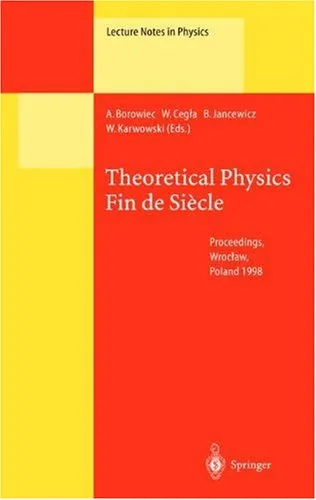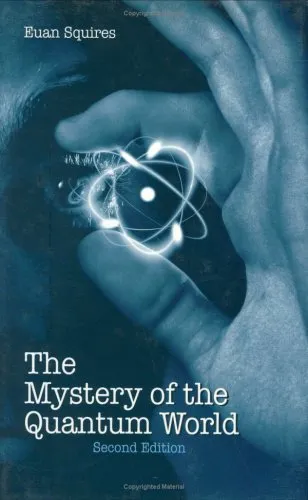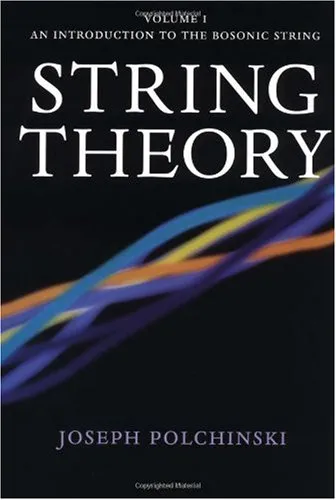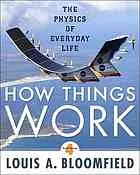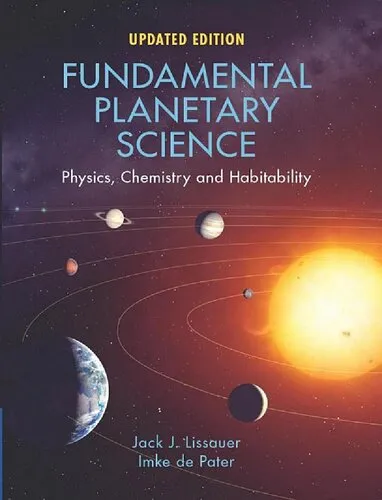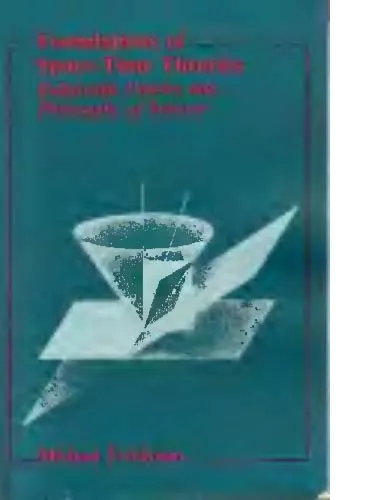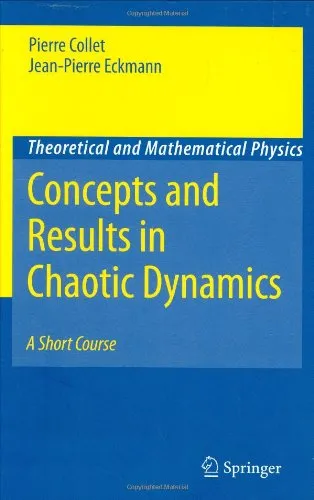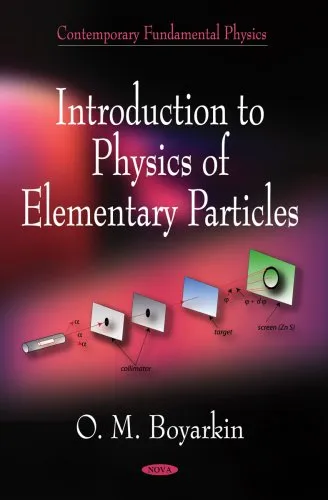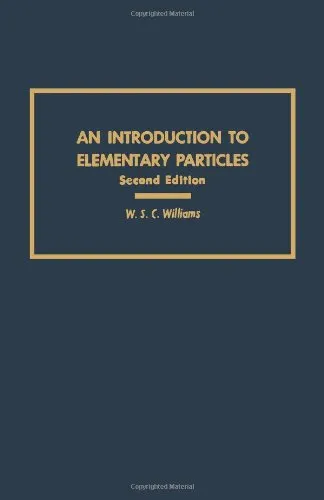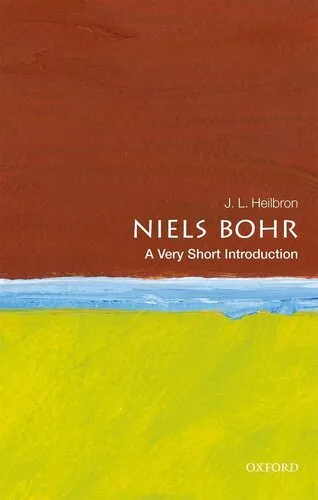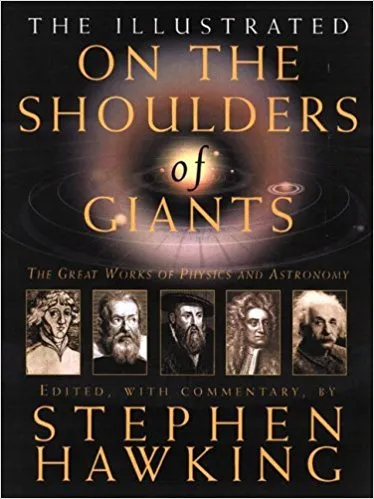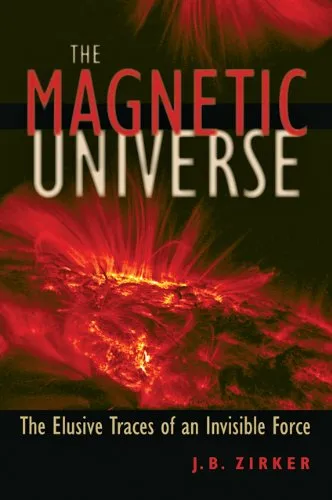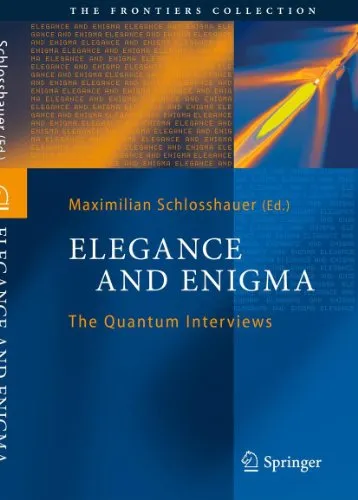Theoretical physics fin de siecle
4.4
Reviews from our users

You Can Ask your questions from this book's AI after Login
Each download or ask from book AI costs 2 points. To earn more free points, please visit the Points Guide Page and complete some valuable actions.Related Refrences:
Welcome to "Theoretical Physics Fin de Siècle"
"Theoretical Physics Fin de Siècle" is a profound exploration of physics at the turn of the 21st century, compiled to reflect the rapid transitions and foundational upheavals in the field. Written by Andrzej Borowiec, Wojciech Cegla, Bernard Jancewicz, and Witold Karwowski, this book delves deep into the milestones of theoretical physics, bridging its historical heritage with contemporary developments. It synthesizes a kaleidoscope of ideas, connecting quantum theories, the fundamentals of relativity, and state-of-the-art phenomena addressed by modern physics.
This work does not cater only to physicists or academicians—it also warmly invites enthusiasts with a keen interest in understanding the intricate frameworks of our universe. By employing thought-provoking narratives and approachable discussions, the authors successfully weave a tapestry of physics, threading together insights that both illuminate its elegance and unearth its complexities.
In this introduction, we’ll explore the book’s key components, offer a detailed summary, highlight some of its most striking insights, and discuss why this book is an essential addition to any library of theoretical physics.
Detailed Summary
The book begins by tracing the historical trajectory of physics, anchoring its foundations in the late 19th and early 20th centuries. It examines the birth of quantum mechanics and the theory of relativity, emphasizing their pivotal role in shaping modern physics. By contextualizing these ideas, the authors provide a solid groundwork for understanding why physics experienced such monumental shifts during this period and how these developments laid the groundwork for discoveries still unfolding.
Among its central themes is the unification of theories—ranging from quantum fields to string theory—where the book scrutinizes attempts to reconcile contradictory paradigms. It also contemplates the philosophical implications of key physical theories, debating concepts such as determinism, causality, locality, and the role of observation in defining physical reality. Additionally, it explores how technological advances in the last few decades have revolutionized experimental physics.
The book concludes with forward-looking reflections on unresolved questions like dark matter, dark energy, and the quest for a Grand Unified Theory. Readers come away with a comprehensive understanding of both the historical context and future prospects of theoretical physics.
Key Takeaways
- The turn of the 21st century was a golden age for theoretical physics, catalyzing breakthroughs in both fundamental principles and experimental techniques.
- A comprehensive understanding of quantum mechanics and relativity is essential for transcending into advanced concepts like string theory or quantum gravity.
- Philosophical questions play a significant role in physics, influencing interpretations of key theories and directing the course of study.
- The intersection of technology and research is a vital dynamic, enabling scientists to probe deeper into the mysteries of the cosmos.
- Unresolved phenomena such as dark matter and energy continue to inspire physicists to rethink foundational assumptions.
Famous Quotes from the Book
"Physics at the precipice of a century is poetry—an interplay of doubt, discovery, and boundless ambition."
"The theoretical tapestry of the universe is woven by the threads of what we know and the voids of what we must still explore."
"Progress in physics is not measured solely by answers, but by the elegance of the questions we choose to ask."
Why This Book Matters
"Theoretical Physics Fin de Siècle" serves as a bridge between past and present, offering an exceptional synthesis of history, theory, and philosophical depth. In an era where scientific inquiry continues to break boundaries, understanding the evolution of pivotal ideas is critical for aspiring physicists, researchers, and armchair enthusiasts alike. The text also emphasizes the human aspect behind scientific discovery, revealing how intellectual curiosity, collaboration, and an openness to questioning conventional thinking drive the quest for understanding.
By addressing the profound challenges faced by theoretical physics post-1900s, this book prepares readers for the scientific revolutions still to come. It champions the importance of intellectual history, intricately connecting physics with broader fields of philosophy and mathematics.
Whether you are a seasoned physicist seeking a deeper appreciation of your field or a newcomer eager to grasp its core concepts, this book stands as an invaluable resource, guiding you through the intricate labyrinth of theoretical ideas. Its significance lies not just in its content but in its ability to inspire and provoke curiosity—qualities that lie at the heart of all scientific endeavors.
Free Direct Download
You Can Download this book after Login
Accessing books through legal platforms and public libraries not only supports the rights of authors and publishers but also contributes to the sustainability of reading culture. Before downloading, please take a moment to consider these options.
Find this book on other platforms:
WorldCat helps you find books in libraries worldwide.
See ratings, reviews, and discussions on Goodreads.
Find and buy rare or used books on AbeBooks.
1351
بازدید4.4
امتیاز0
نظر98%
رضایتReviews:
4.4
Based on 0 users review
Questions & Answers
Ask questions about this book or help others by answering
No questions yet. Be the first to ask!
